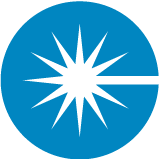Over the years, I have been fortunate to spend lots of time (full-time for the last 2 years) learning from how thousands of early-stage (pre-series-A) COSS founders think, operate, build and more.
The #1 most critical quality I often see missing from their thought process and overall approach is a deep understanding of what I like to call "Market Dynamics". Let's dig into what I mean.
When building a COSS company in the early days, it is common to focus only on the technology. You are building something exciting for developers or end users who care about open source. It might be easy to think that once you build this exciting open source thing, everyone will organically learn about it and start to use it.. and that assumption might end up being right! Open source has amazing ways of finding efficient distribution, engagement and stickiness with large user communities, quickly.
In reality, as a COSS founder, you almost always have to be equal parts business builder (entrepreneur) and open source builder (technologist).
However, what nearly every early-stage COSS founder I speak with fails to deeply understand is the importance of having a clear point-of-view on the following questions, and furthermore, very thoughtful data that serve to illuminate a comprehensive perspective on a given market:
Once I build a commercial product or service around my open source core, who am I targeting? Who is/will be the end user customer?
What will I charge my end user customer for, exactly?
What pain points am I solving for that will be measurable enough to have someone pay for solving them?
Am I operating in a space that existing/legacy vendors are serving? If yes, who are those companies? What do they charge for? How do they charge for it? What are the revenues/growth rates or analyst sentiment on that market?
Is my end user customer educated about the capabilities of a COSS product (not your open source project) I will build in future? If not, do I have to educate those potential customers about a partially or completely new "terminology stack" in order for them to see the value? In other words, am I creating a new category/market or disrupting an existing one? Or something in between?
If I am operating in an existing market instead of creating a new one, what does that current market look like? How large is it (# of customers, $ spent per year, competitors, etc)? Is it evolving (why and how)?
Is my open source core a feature of a larger product that may be hard or improbable to commercialize at scale on its own? (bundling vs. unbundling)
Are there other companies (open core or not) addressing the customer market I am going after in the future? If yes, who are they and how are they doing? (funding, growth, revenue, etc)
What are my technical differentiators that will give my commercial product a distinct advantage, and why?
How will I charge for my commercial product (unit of measure, pricing model, etc) and is this based on re-thinking an existing approach already in the market, where customers have been conditioned to pay a certain way, or is this likely to be a new pricing approach?
How will I "go-to-market" with my future product? How will I achieve distribution? How will I access my target customers? How will they discover me?
How will my product sales motions work in the early days? Self-serve? Hands-on?
When will I start to build commercial product and what will the drivers be which will affect that timeline?
These are just a few high-level questions that, if answered with critical consideration, can unlock a great deal of clarity about how to mitigate risks and make better decisions.
As a solo or duo technical founding team, you often may NOT need to hire another team member early on to answer these questions. In fact, if you need to bring on another team member in order to begin to precisely answer these questions and develop strong points-of-view, you may not be the right founding team for the company you are building.
The best founding teams (CTO and CEO) both have strong understandings of these questions and have different ways of looking at the questions.
There are no perfectly "right" or "wrong" answers. The only failure is in forgetting to think carefully about all of these questions from Day 0 or when you embark on your journey to build a company.



Oldest comments (0)